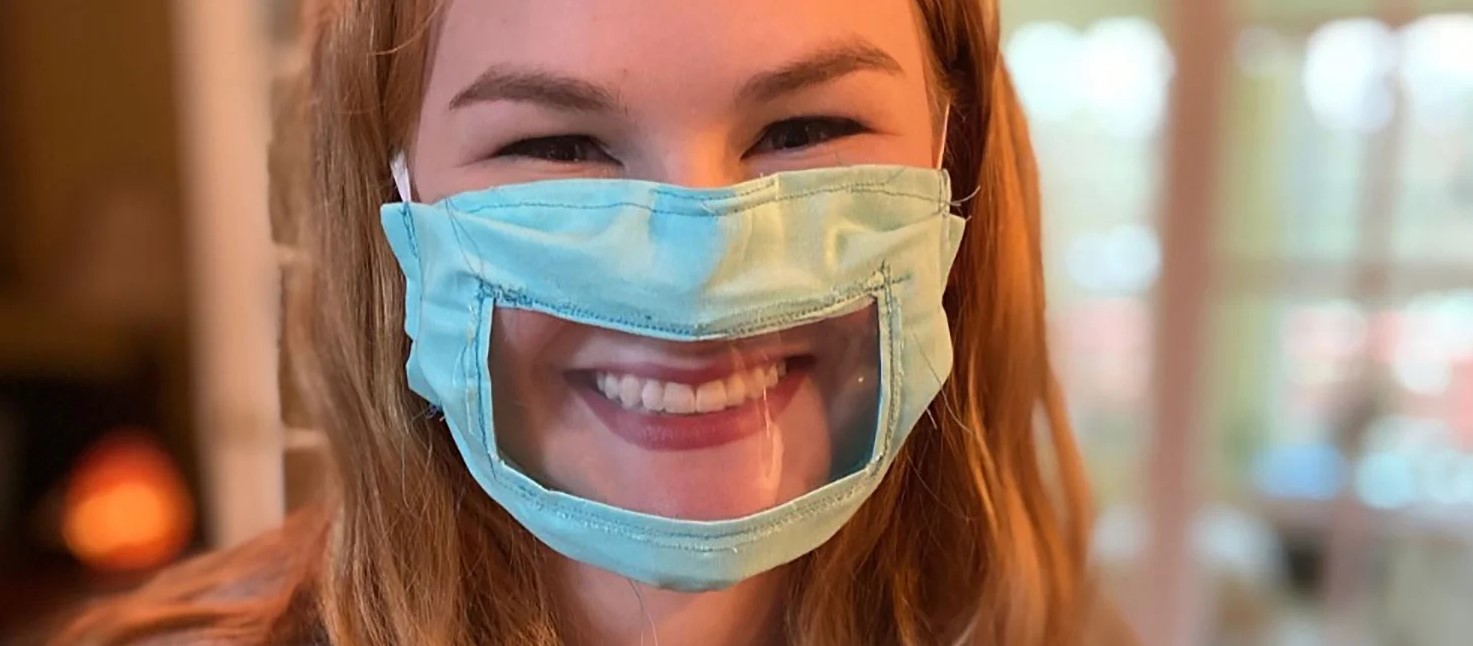- Daily & Weekly newsletters
- Buy & download The Bulletin
- Comment on our articles
Visually and hearing impaired face extra challenges during corona crisis
While quarantine isn’t exactly fun for anyone, the visually and hearing impaired are having a much harder time than others dealing with coronavirus measures outside of the house. While guide dogs are clueless about social distancing, lips are impossible to read behind those facemasks.
“I can barely go outside because I lose my orientation immediately,” Manuela Bosmans of Limburg told VRT. “I always follow the same routes, but that doesn’t work anymore.”
Bosmans is blind, so cannot read all those signs or follow all those arrows telling us where we’re no longer allowed, in which direction to walk and where we can’t sit. “None of this relates to me because I can’t see or read them,” she explains. “If I need to go inside somewhere, I have no idea where I’m supposed to walk.”
Bosmans guide dog, of course, has the same problem. And social distancing is of course also impossible. While a guide dog could regulate this, none of them are trained to do it. “I can’t really do anything on my own anymore.”
She has advice for anyone who comes across a visually impaired person on the street. “Just keep your distance and definitely don’t approach the dog because they don’t understand social distancing. If you see someone who needs help, it’s best to walk in front of them and keep talking. Then we can follow your voice.”

The deaf and hard-of-hearing have a different problem. While they can follow all the arrows and practice social distancing, they can’t read lips if you’re wearing a facemask. While this problem was limited somewhat during the lockdown, now that masks are being encourage for those going shopping or back to work, the problem has become much more apparent.
“The needs of people with disabilities are simply not considered when measures are imposed,” Marie-Danielle told RTL. When she hears that wearing a mask is compulsory on public transport, for instance, she feels “forgotten”.
Marie-Danielle lives near Seraing and belongs to a sheltered workshop that finds jobs appropriate for people with disabilities. She was working in a restaurant kitchen until the coronavirus hit and it has to close.
She returned to her workshop and was put to work making … facemasks. She relies very much on lip-reading to understand what people are saying, and now she cannot tell if they are talking at all.
Living in ‘the background’
“I totally live in a kind of background now,” she said. “There’s no more dialogue around me, and I am extremely frustrated.” During a meeting at work, for instance, “my deaf colleagues and I do not understand anything. It’s terrible how we are just put aside in the world right now when we are also part of the workforce, part of the population.”
But there is good news for Marie-Danielle – a company in Brussels is making masks with clear panels at the mouth to allow lip-reading. Brochage Renaître, a bindery and packaging firm in Evere, will soon begin to produce them.
Brochage Renaître also has people with disabilities in its workforce and so became quickly aware of the problems facemasks entailed when it was allowed to re-open early last week. Disability agencies in Brussels will assist in getting the masks to sheltered workshops and other places where interaction with deaf and hearing-impaired people is the norm.
“It is essential that people with hearing loss receive transparent masks for themselves or to give to their loved ones,” Pascale van der Belen of Info-Sourds, a deaf support organisation in Brussels, told RTL. “People talk about sign language, but the deaf and hard-of-hearing read lips above all.”
Van der Belen herself is hearing-impaired. “We don’t realise how much hearing impaired people hear with their eyes. I have to put my glasses on to hear.” And added to that: “Everyone needs to see a smile or other facial expression to understand a verbal message.”
Photos, from top: Halfpoint/iStock/Getty Images Plus, courtesy GoFundMe



















